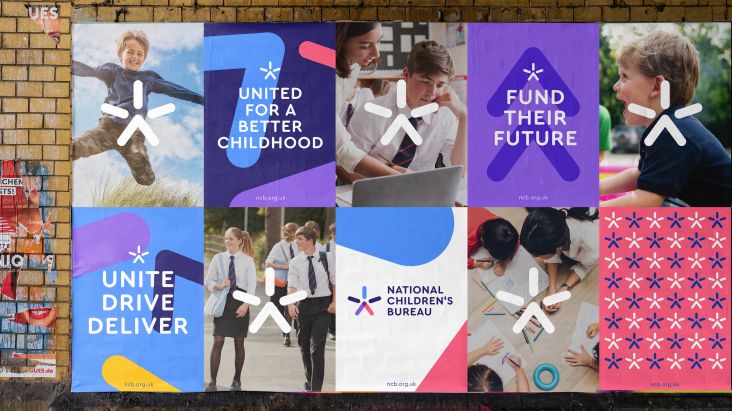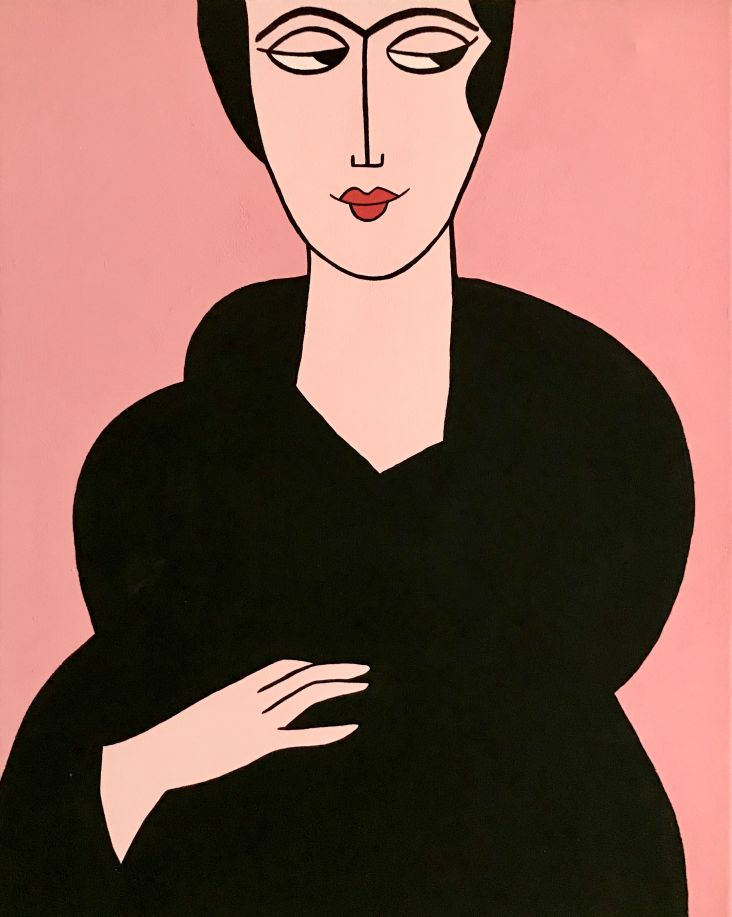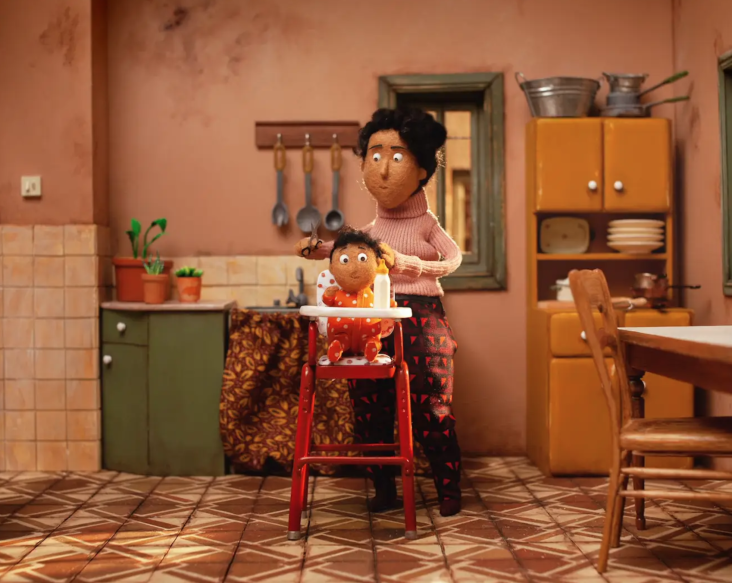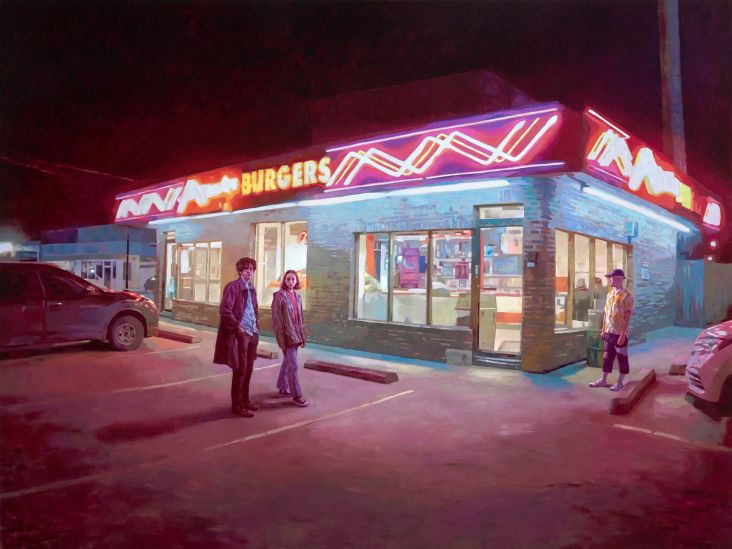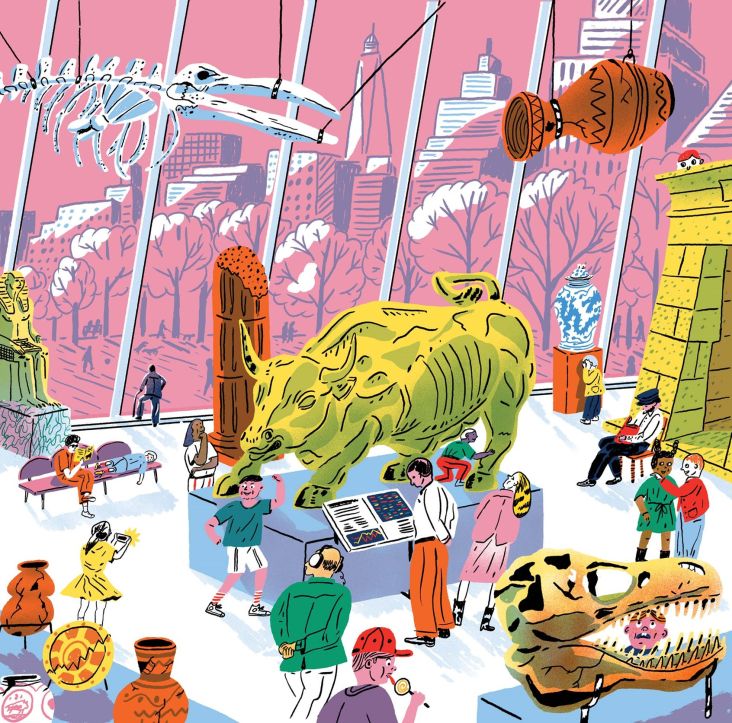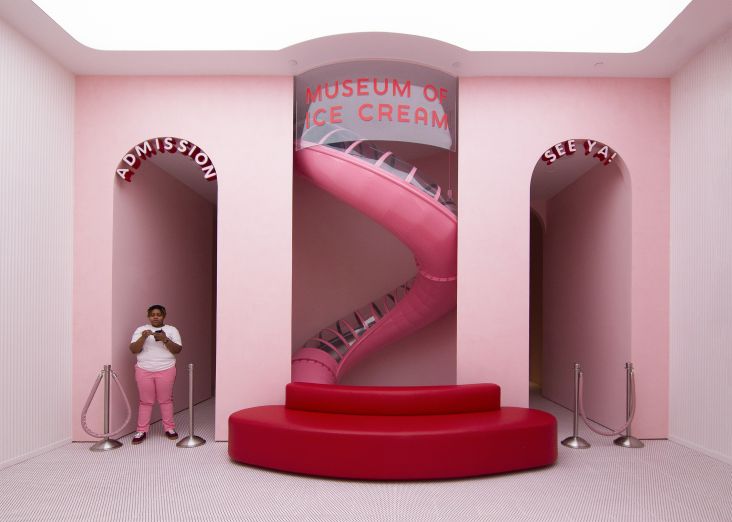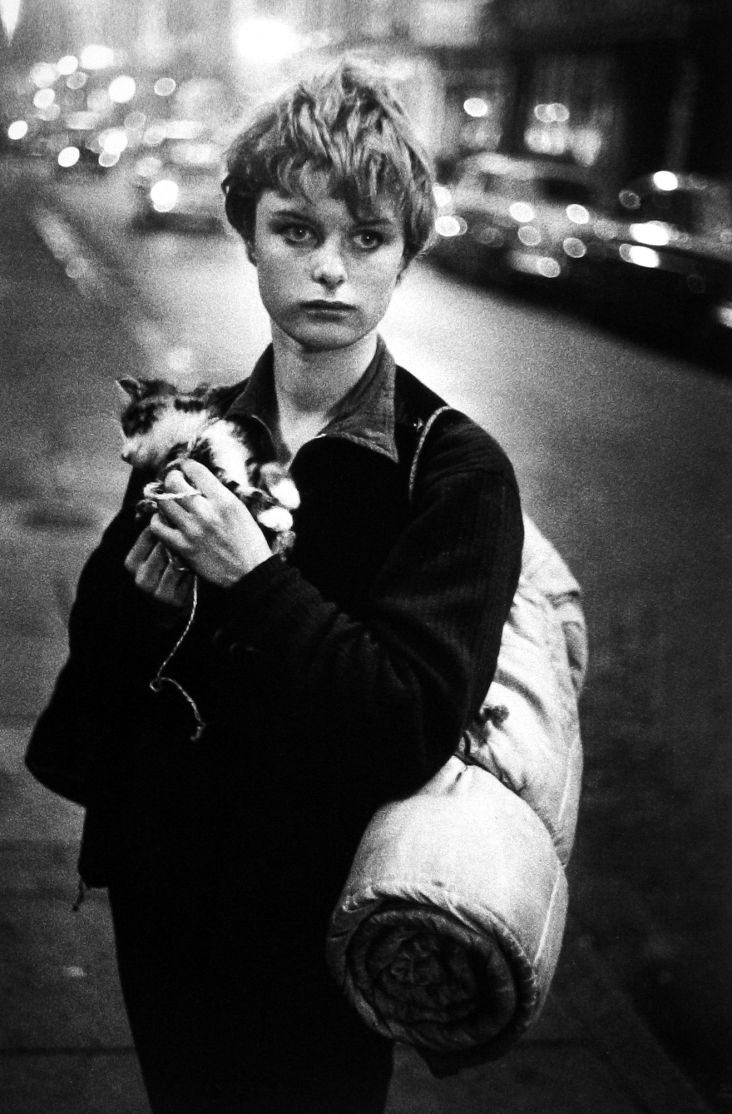Iancu Barbărasă on expanding his creative focus and how freelancing has changed his life
Iancu Barbărasă is a graphic designer and illustrator based in London who has been freelancing since he moved to the UK over nine years ago.

Born in Transylvania, Romania, his surname means 'shaved beard', which has roots in a popular style of beard many centuries ago. His business persona is Iancul (@ianculdraws on Instagram) because that's the medieval version of his name (from a famous Transylvanian king).
Iancu is also a huge fan of side projects, which he says has helped to get his name out there and attract the attention of some of the UK's biggest and best agencies and brands. We thought we'd ask Iancu about his experiences so far and what advice he can share as a freelancer.
How did you get to where you are?
The plan initially was to go to law school, just like my dad and later, my brother. But I always liked drawing, so I chose design school instead. After graduating, I worked in advertising before switching to branding and doing many great projects with Brandient, the best agency in Romania.
After a few years, I moved to London, hoping to learn from and work with the best in the world. It took a while (saying you studied in Transylvania works great in a pub, less so in front of recruiters). Still, thanks to a few kind people, the ITV rebranding project (one big stepping stone) plus 200 booklets and handwritten letters I mailed to people, I soon ended up working with many of the top agencies and studios as a freelancer. I've been doing this for the last seven years.
During this time, I kept working on personal projects to balance my office work. They drew the attention of one of the tech giants (sorry, mum's the word), who commissioned me as a hand-lettering artist in 2018. I enjoyed the project a lot, so since then, I've been slowly expanding into illustration as well.
How are you finding freelancing?
It's the best way to learn, as a freelancer you grow at least three times faster than as a full-timer. Seeing how people handle clients and manage their teams in many different ways is invaluable.
Some aspects are less fun, like having to manage your finances (you have to be prepared for downtime), network and update your portfolio regularly, but overall it's worth it. And of course, it's great to be able to move on if something's not working well.
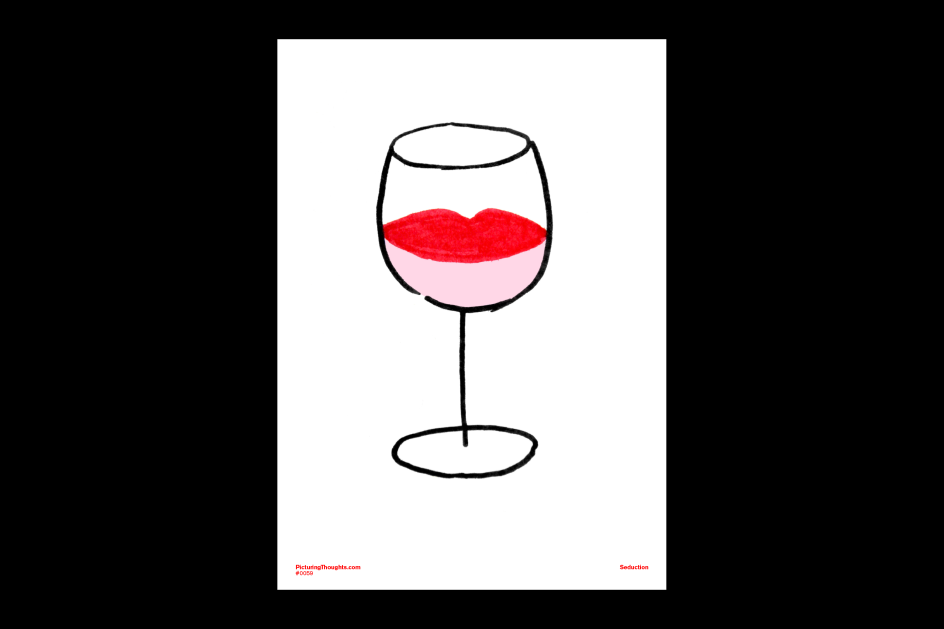
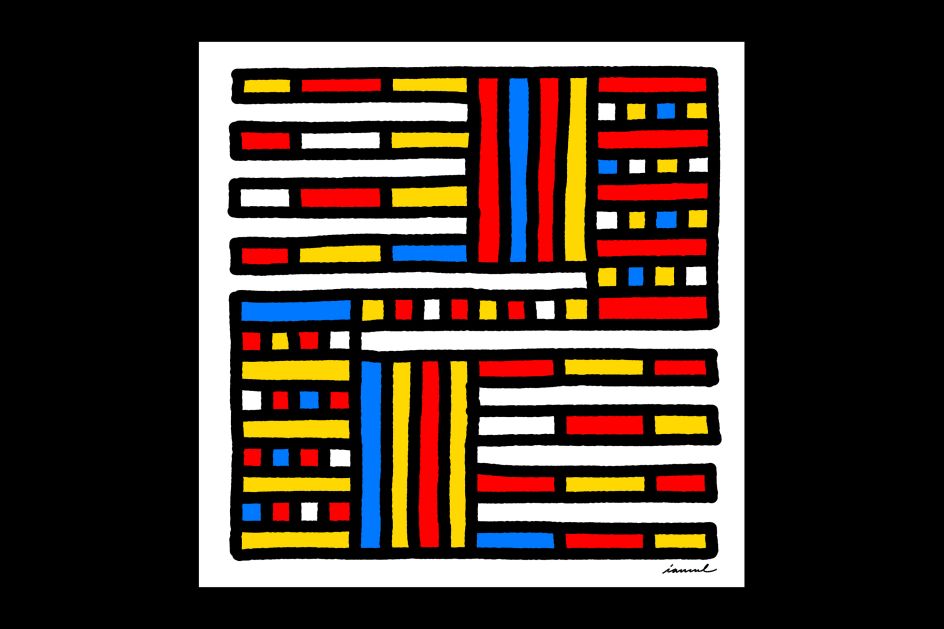
What have you learnt in 2019? What are the big lessons you’re taking into this year?
The biggest thing to learn was that I'm not just a designer. I've been "making things" for years, but I always found it uncomfortable to think of myself as an artist. However, the truth is anyone making things for their pleasure first is an artist. "Art is whatever," as Milton Glaser once said.
The lesson I'm taking into the new year is that the only thing that matters is making things that either make me happy, inform or delight. Maybe even inspire people – regardless of the medium (graphic design, illustration, pattern design, lettering, ceramics, and so on).
Is there anything that is bugging you about your profession or industry? What would you like to see change?
Advertising and branding have been trying for so long to sell things to people even when they don't need them that they've lost their credibility – and soul – almost entirely. I'm hoping that the younger generation will bring in some of the same courage and integrity that they're showing with their environmental activism. As Bob Hoffman, The Ad Contrarian, once said, one of the biggest problems is the lack of principles, and this impacts everything.
On a smaller scale, it would be great to see unpaid pitching disappear (everyone loses long-term). It would be nice to see interns paid properly (no wonder there's little diversity in the industry). And I'd like to see people thinking for themselves (not just copying the latest trends). I'd also love to see people draw and read more. You're only as good as the amount of time you spend practising your imagination and expanding your knowledge.
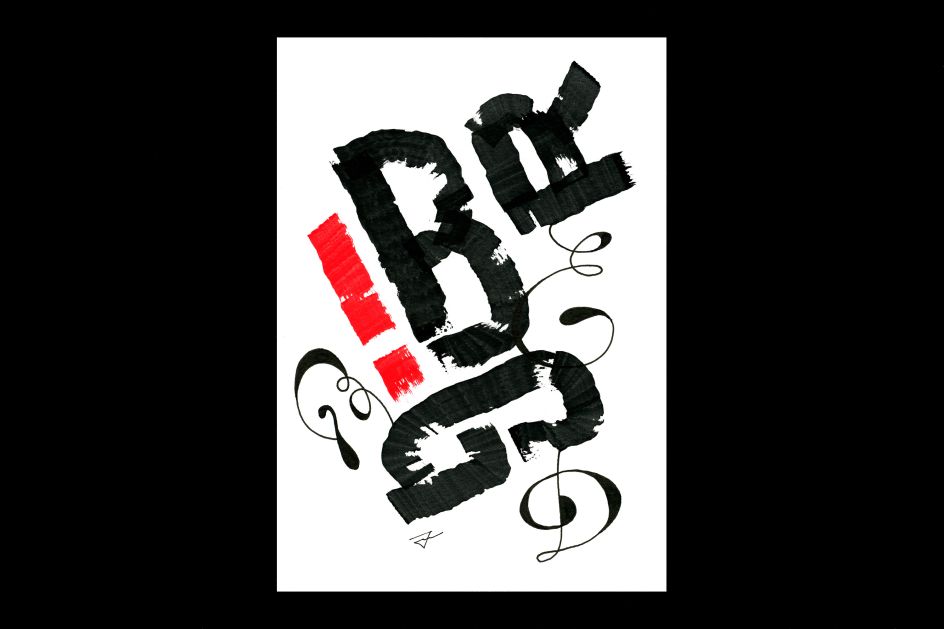
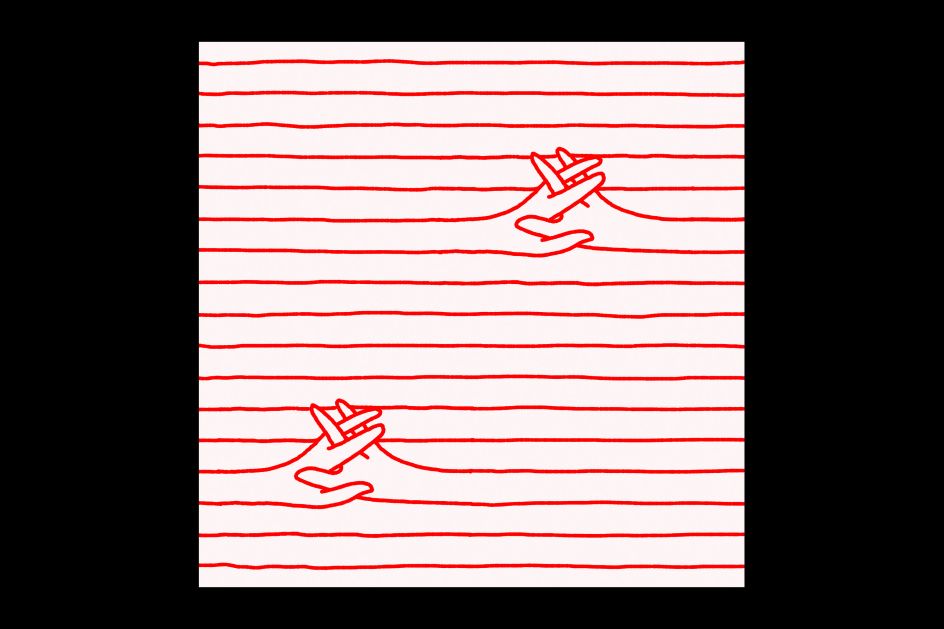
You mentioned personal projects. Tell us more about your latest, Picturing Thoughts.
Branding and design projects are the most fun in the early stages, when you're exploring ideas, wondering. But once that part is finished, the work can get quite "serious", especially with more prominent clients. Personal projects are a great way to keep yourself balanced.
The main goal with Picturing Thoughts was to play, turning exciting ideas into images. I wanted to experiment, to learn more. As Christoph Niemann said, athletes and musicians practice regularly, so why shouldn't designers and artists?
Initially, I was drawing ideas in my sketchbook and doing the final work on the computer, but gradually I moved away from it. By the time I started Drawriting, another personal project, it was just ink and paper. Free drawing, trusting my eyes and hands, trying to surprise myself.
Both these projects got featured in online magazines and received praise from several great designers I admire (meeting Michael Wolff was especially inspiring). And as I mentioned earlier, one personal project led to being commissioned as a hand-lettering artist, which expanded my view on the kind of projects I'd like to do in the future.
Freelancing can sometimes be tough. Do you ever suffer burnout? How do you cope?
You can't grow without struggle. Just look at sports or music, you need to work hard and put in a lot of time if you want to get any better.
In my experience, burnout takes two forms: physical, from too much time spent working – and mental, from too much time spent doubting and judging yourself. The first one can be avoided by developing good habits. For example, clearly define your working hours (I try to do an hour in the morning for personal work, then 7-8 hours of office work), get enough exercise (I'm part of a cycling club and ride around 200km every week) and get enough sleep.
The second one can be avoided by focusing more on the process and less on the outcome. Do a lot of work, and eventually, the good stuff will stand out. We're rarely great judges of our own work, especially during or after doing it. Also, avoid comparing your work to others' and beating yourself up about it. You'll get better if you keep working, that's for sure.
Easier said than done, of course. I often send emails to remind myself that I need to rest or that I should stop counting likes and spend less time looking at the competition. But all is good as long as there's progress.
Is freelancing for everyone?
Short to mid-term, I think everyone should do it. Three or four years would give you plenty of experience, after which you can start looking for an excellent team to be a part of – or keep freelancing.
Long-term though, it's not for everyone. Most people find it hard to stay motivated and keep growing on their own, especially when they get past 10-15 years of experience. Alan Fletcher once said to beware the man who says he has 20 years of experience when he should be saying he has one year's repeated 20 times. It's where personal projects help a lot and having a list of great people to work with regularly.
As a side note, those keen on going up the career ladder or running their own company will be busy learning strategy, marketing, management, public speaking and other skills. However, those are quite different paths that gradually take you away from doing what you love, which is playing with pictures.
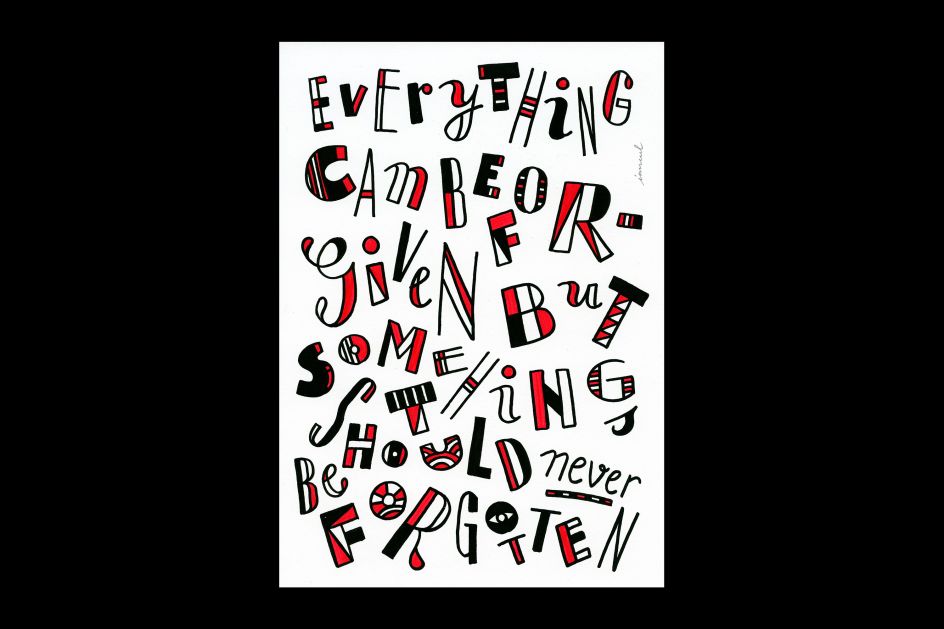
What advice would you give to those thinking of starting their own business?
Firstly— plan, make sure you have at least enough money to pay your bills for the next two months, ideally six. And ask your friends or colleagues to recommend you a good accountant.
Secondly, network and share your work regularly, with as many people as you can, but always show first that you're interested in them.
Also, choose the people, not the projects. The most exciting project can be a nightmare if you're working with bad people, while an uninteresting project can become a pleasant surprise if you're working with great people.
I'd also recommend doing work that genuinely helps and is not wasteful. Avoid doing work that is only appreciated by your peers. Industry awards are fool’s gold.
And finally, give back, help those less experienced than you. I've only gotten this far thanks to kind people who encouraged me or shared their knowledge.
Is there anything you'd have done differently in your career so far?
I wish I realised a bit sooner what to do next. Design work was getting a bit repetitive, and I knew I didn't want to become a creative director in an agency, so I was looking for a different direction. For a while, I thought learning to code was the way because so many were talking about it, and I did coding in high school anyway. But I kept finding excuses not to put the time in it.
Fortunately, people liked my personal projects and hired me as an illustrator, which made me realise the answer was right in front of me: I wanted to draw more. I had already been doing it for many years (I always carry a sketchbook with me and have a tidy collection by now). In hindsight, it makes perfect sense, but of course, you can only see things clearly afterwards. So if you're ever in doubt, best to look first at what you already do, or have a keen interest in.

 for Creative Boom](https://www.creativeboom.com/upload/articles/06/063686a9a3b095b9b1f0e95df917ed4bd342be1b_732.jpg)


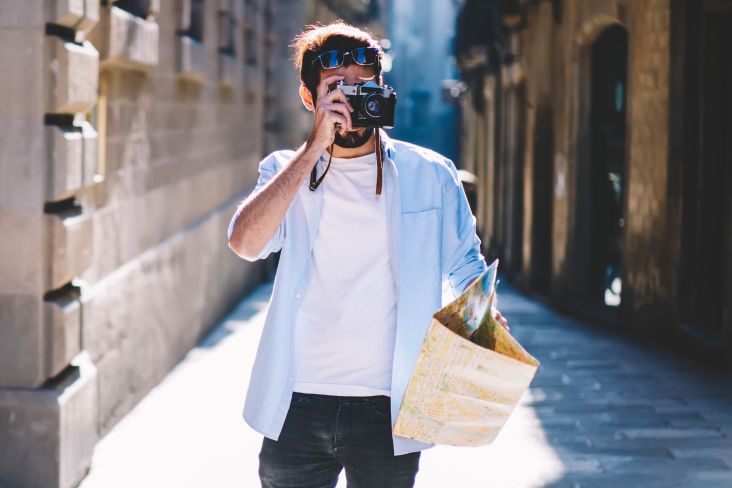
 using <a href="https://www.ohnotype.co/fonts/obviously" target="_blank">Obviously</a> by Oh No Type Co., Art Director, Brand & Creative—Spotify](https://www.creativeboom.com/upload/articles/6e/6ed31eddc26fa563f213fc76d6993dab9231ffe4_732.jpg)
 by Tüpokompanii](https://www.creativeboom.com/upload/articles/58/58684538770fb5b428dc1882f7a732f153500153_732.jpg)








